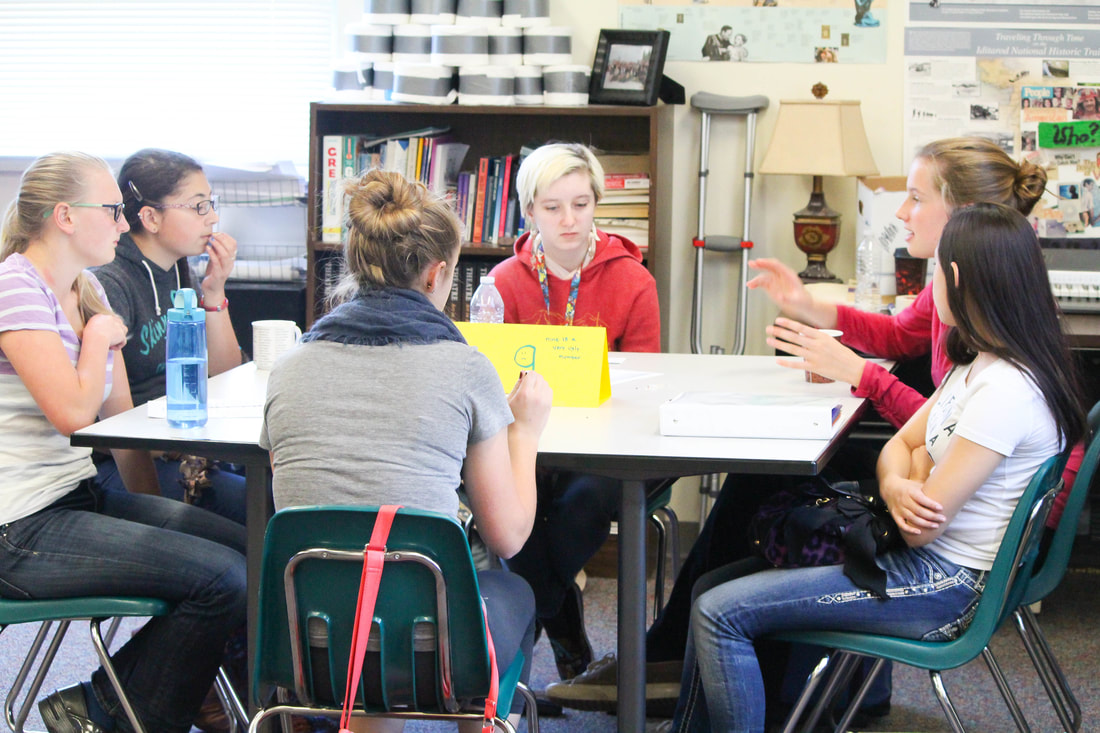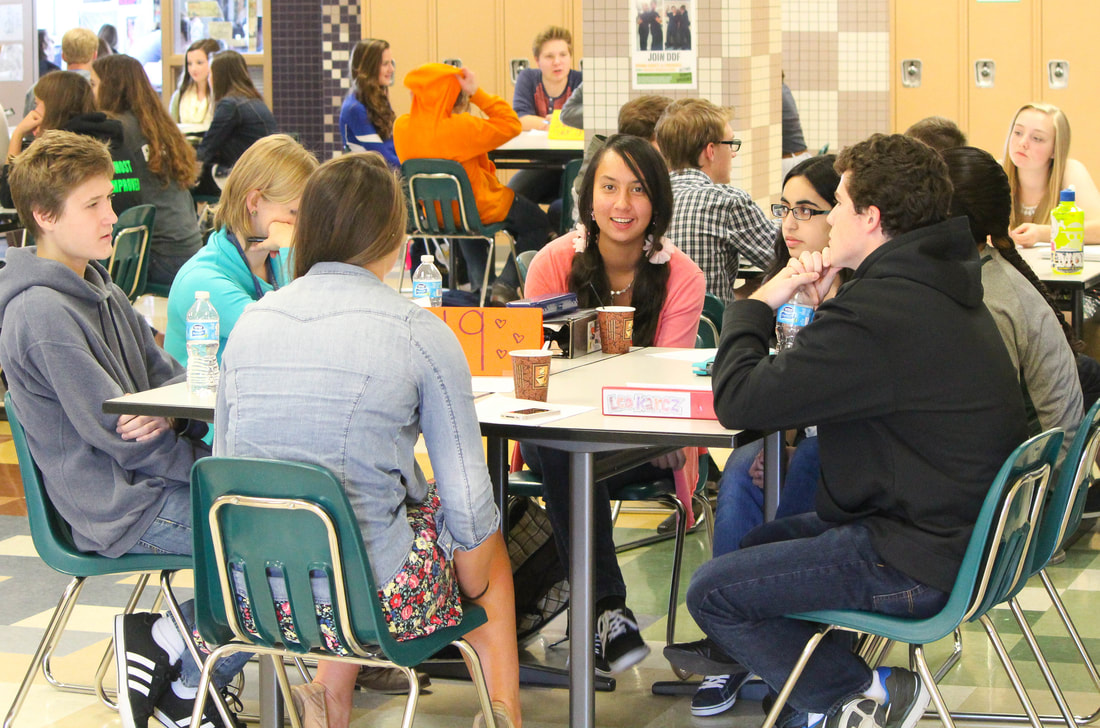WHAT IS SEMINAR?
|
The Seminar School at Service High is a multi-disciplinary school of language arts, social studies, math, and science devoted to fostering intellectually curious students who are ready to encounter the world’s greatest thinkers with an open mind. The defining thread of The Seminar School is the study of big ideas from around the world that have challenged humanity throughout the ages; we grapple with these ideas because they are what define us as human beings. The Socratic Method fosters a cooperative dialogue where we evaluate our assumptions and logically consider our own and others’ ideas. Students inquire about philosophical, cultural, political, and historical ideas, give voice to their opinions, and learn to listen respectfully and kindly to others. Through this process, students develop discipline in their habit of thought and learn to ask pertinent questions. We encourage our students to be passionate, reasonable, and self-reflective young adults who are well prepared to pursue college or any other path. The Seminar School offers a complete social studies and language arts curriculum to the 9-12 grade student. Language arts classes are multi-age and multi-grade. Social Studies courses are grade specific. |
Social Studies Class by Grade: 9th - World History 10th - US History 11th - Economics & AK Studies 12th - U.S. Gvmt & Philosophy |
HOW DOES IT WORK? |
|
The heart of the Socratic Method begins with the recognition of our own biases and assumptions. Students first individually read and engage with the text to grow and enrich their understanding. Importantly, while students are expected to fully engage with the text through coaching or annotating, they are not expected to fully understand; sincere effort through defining words and ideas, making connections to other readings or ideas, and asking pertinent questions are the crux to developing understanding. Secondly, students are put into small groups to share their ideas and deepen understanding. Finally, in a whole class setting, students participate in a conversation in which we discuss the bigger ideas of the work.
By the end of the process, students have grappled with their previous assumptions and perspectives about a reading or idea and utilized logic and reason to clarify their own understanding. During this process, teachers model themselves as life-long learners who constantly reassess their own assumptions and views. A teacher’s role is one of a fellow learner: one who seeks to understand and to ask questions as well, not as a final arbiter.
Below you will find a video explanation of who we are and what we do.


